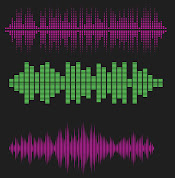I am in the minority when it comes to NaNoWriMo (National Novel Writing Month).
I don't do it. I don't even recommend it. Why? For a few reasons.
The biggest reason I don't participate is that I am a binge writer. I'm also a plotter. When I've got a story outlined in the broad brush strokes of characters and plot, I look at my calendar and see what whole days are completely free to sit at my keyboard and write that story. Most of the time, I write that new story all day (six, eight, ten, and sometimes twelve hours worth). Even on days where my schedule is free half a day, I put in a few hours. That story is my top priority, and I do complete the story.
Look at the NaNoWriMo breakdown— 50,000 words divided by 30 days equals 1,666 words per day. How can anyone write all day, every single day in November? What about voting in the elections? What about Veteran's Day and its parades? What about Thanksgiving Day? A funeral?
For the curious, I do take days off for holidays, doctor appointments, go grocery shopping, attend my embroidery and craft guilds, do sewing, do the newsletter for my medieval group, visit friends, deal with family, celebrate holidays, and handle life's little hiccups and emergencies. Being retired isn't as easy as it sounds.
I was very surprised when I googled and discovered that only 10% to 15% of those taking part in NaNoWriMo actually complete their 50,000 words. Okay, so 50,000 words is the baseline for a novel, but most marketable novels are 80,000 to 100,000 words. When does a NaNoWriMo writer finish the other 30,000 to 50,000 words?
Not doing NaNoWriMo also means I am not under duress and suffering the feeling of being bullied by fellow writers egging each other on to make daily quotas or seeking kudos for achieving word counts. Truth is, I don't need reminders or a cheering section to keep me writing. The story I need to tell is driving me nuts to get it onto the page.
I also like to write as cleanly as possible, which saves on the self-editing and polishing time. For those doing NaNoWriMo, making word counts means speed typing and that proofreading goes by the wayside. And, as the saying goes, one error drags in its wake a thousand errors. Drafts become riddled with typos. Then there are the errors of grammar, syntax, diction, and logic. The plot strays, the characters go off on tangents, and more. No wonder fixing all those errors becomes a nightmare of a turn-off to self-editing for publication.
Be assured, I am not against NaNoWriMo or those that do it. To each their own. However, my curiosity being what it is, I was disappointed when googling anti-NaNoWriMo that I didn't discover a group of anti-NaNoWriMo'ers. Not that I'd join such a group, mind you, but it would be nice to know that I am not solely in the minority-minority.
# # #







.png)
.png)




